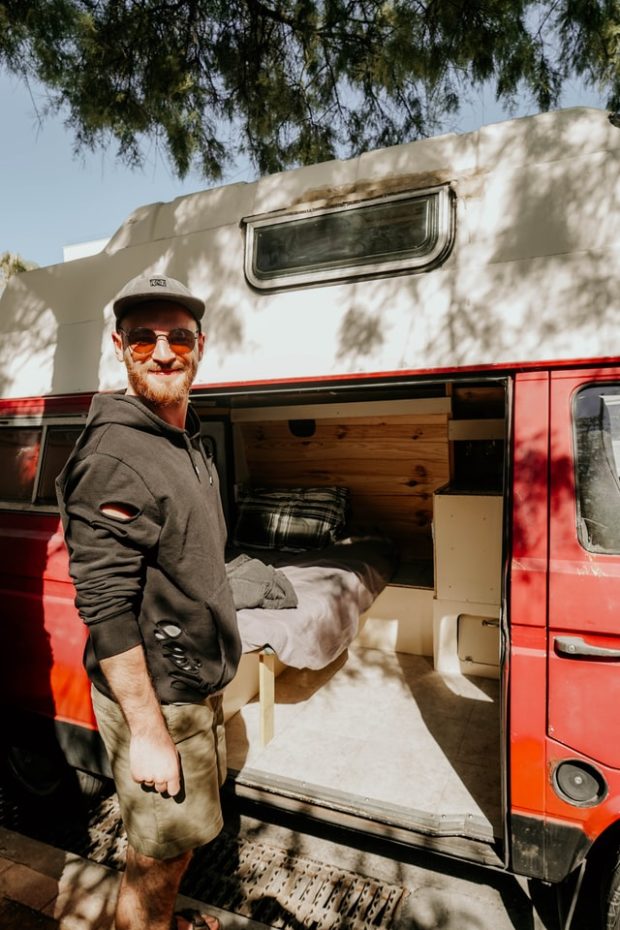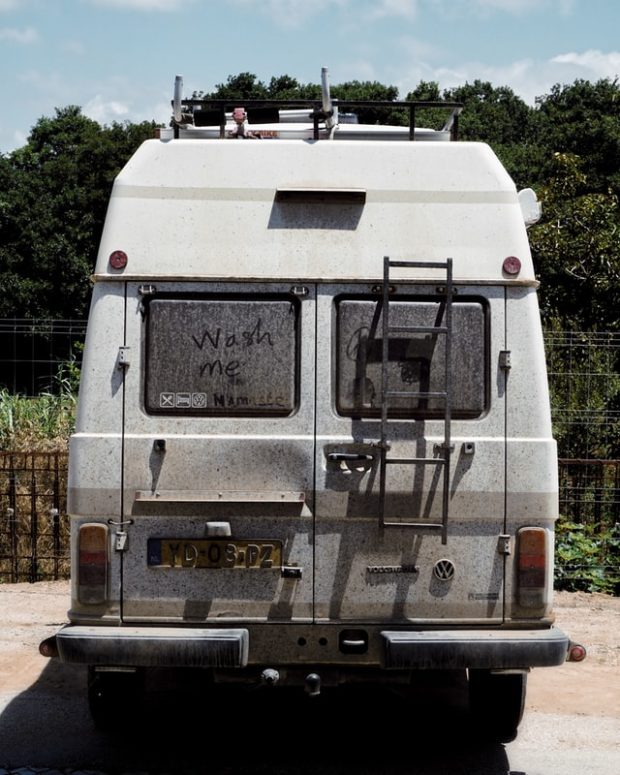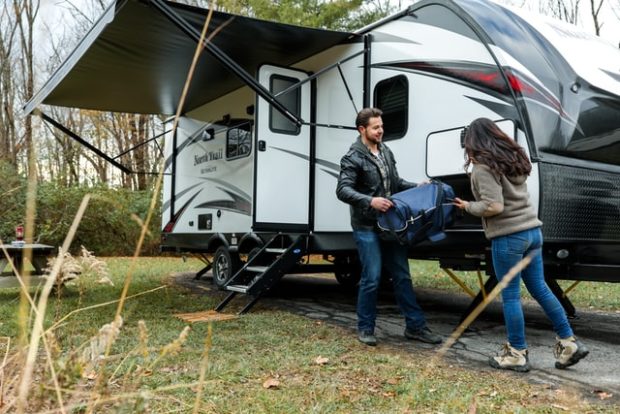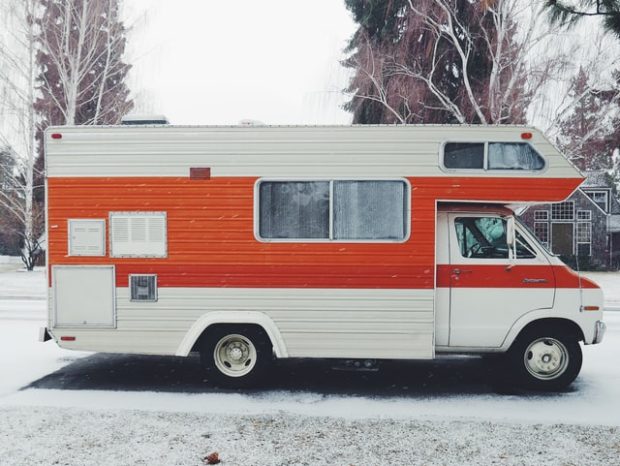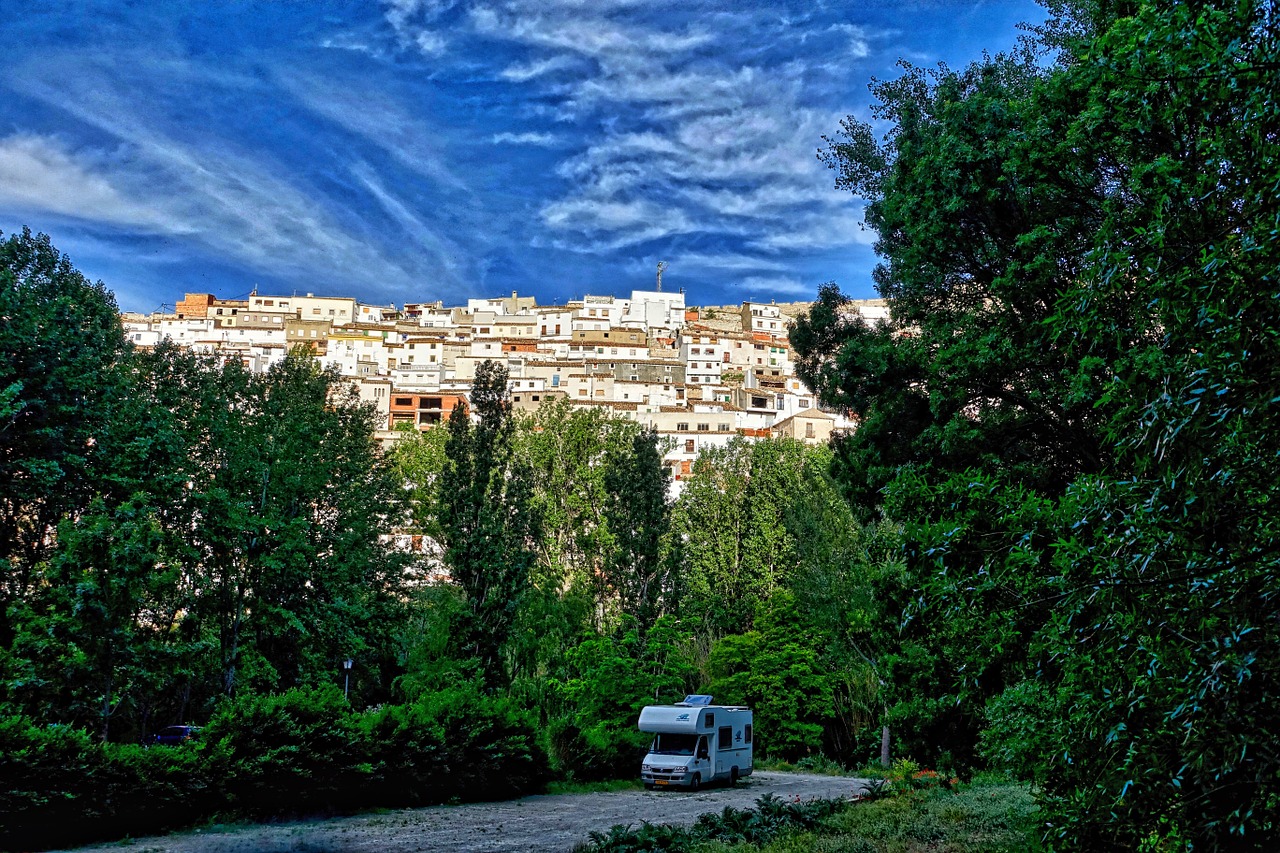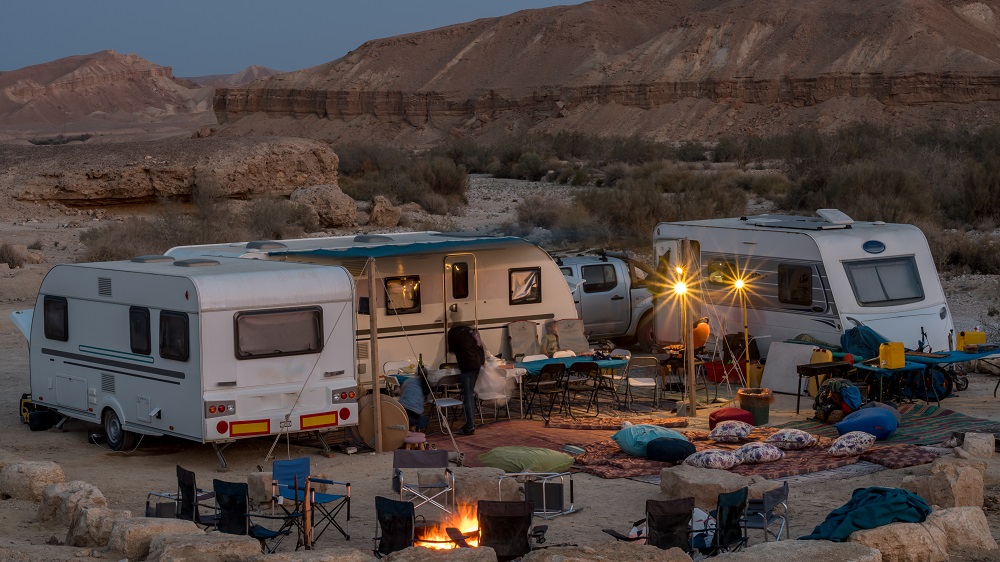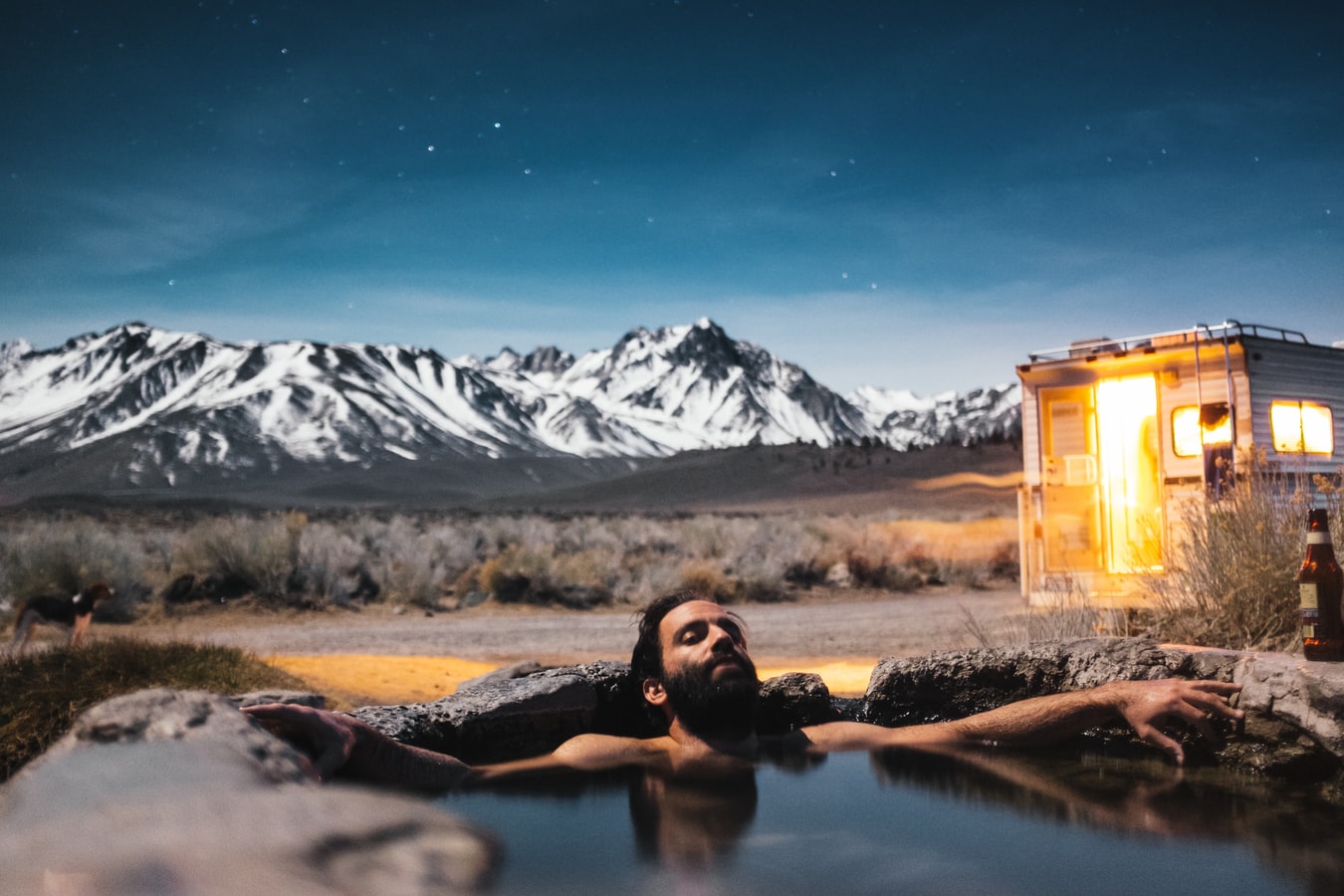When winter weather makes taking out the RV impossible or makes you uninterested in travel, it’s time to give your RV an off-season rest. But failing to prepare your RV before you store it can cause expensive problems that will keep you off the road next season. If you prep your motorhome right, though, it will be ready to go whenever you are.
Check the Outside First
Exterior inspection includes checking the windows and doors for cracks and damage. If you notice any issues, apply caulk to gaps and seams around access panels and older repairs. Look for water damage and fix it so that it doesn’t get worse over the winter. Don’t forget to check the roof, too. Finish your outside inspection with a thorough wash to remove road grime that could permanently damage the finish, and wax to protect the finish going forward.
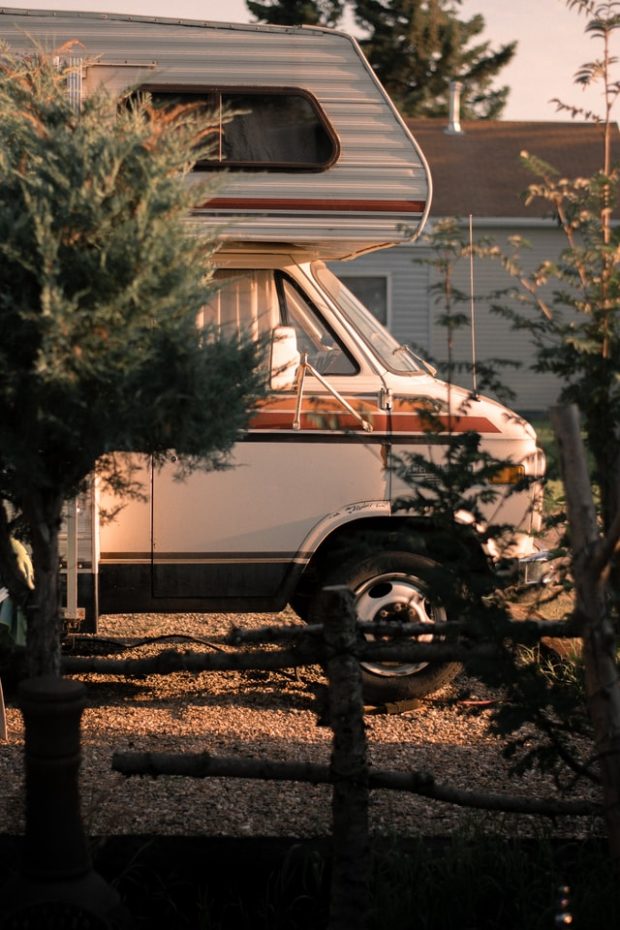
Clean the Inside Thoroughly
Small amounts of food debris left for months can attract ants, insects and other pests. Food left in the refrigerator can spoil and cause an odor that permeates the inside of the camper, and you may not be able to get the smell out next year. Vacuum out the insides of the closets and cabinets, and vacuum under cushions and beds. If there is a clear, sunny day or two before putting your RV away, leave the door and windows open so it can air out.
Find Somewhere to Store Your RV
If you don’t want your motorhome taking up space in your yard during the off-season, you can obtain a space at an RV storage facility. These are also great places to store an RV when you’re away or moving. Most RV storage spaces are inside secured lots with access control, lighting, and guard patrols. Some RV storage facilities offer covered and heated spaces as well.
Drain the Water System
Before moving your RV to storage, both the water tank and the waste tank need end-of-season maintenance and cleaning. You can find on-toxic RV antifreeze for these systems that you can use for a thorough flush. This step can keep lines from freezing and fittings from popping when temperatures stay below freezing. If you skip draining these systems, costly repairs are almost certain.
Winterize Under the Hood
Mechanics usually recommend filling the gas tank completely and adding fuel stabilizer as well as adjusting radiator antifreeze and changing the engine oil. Be sure to run the engine for a few minutes after doing these things to circulate the fluids and additives. It’s also a good idea to disconnect the battery and store it in a warm place if you don’t have climate-controlled storage.
When you put a little effort into storing your RV right, you can save yourself money and hassles next year. With careful inspection and cleaning plus engine and water system preparation, you can maintain the quality of your motor home so it can face another season of taking you wherever you want to go.
Author Bio
Anita Ginsburg is a freelance writer from Denver, CO. She studied at Colorado State University, and now writes articles about health, business, family and finance. A mother of two, she enjoys traveling with her family whenever she isn’t writing. You can follow her on Twitter @anitaginsburg.

